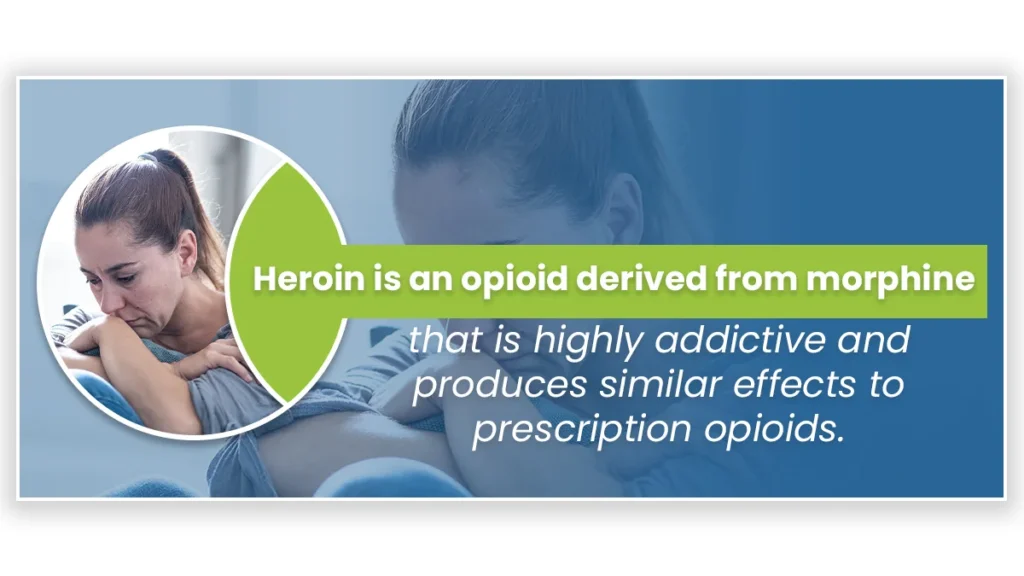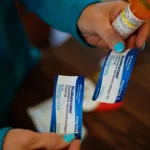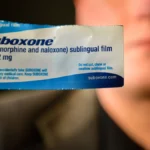Heroin belongs to the same class of drugs as prescription painkillers like oxycodone and morphine. Opioids, including heroin, work by binding to specific receptors in the brain and body, affecting pain sensations and producing a sense of euphoria.
This article delves into the relationship between heroin and other opioids, highlighting their differences. In addition, it explores available addiction treatment options, shedding light on the pathways to recovery for individuals struggling with heroin or opioid dependence.
Key Takeaways
Heroin belongs to the opioid family, derived from morphine, impacting the brain’s pain receptors. Here is what you need to know:
- Heroin shares physiological effects with prescription opioids but poses unique risks due to its potency and rapid onset.
- Immediate heroin effects include euphoria and decreased heart rate, while long-term abuse leads to physical and mental health issues.
- Heroin differs from prescription drugs in its production, legality, and heightened risk of addiction and overdose.
- Addiction treatment approaches include medical detox, inpatient treatment, counseling, MAT, and peer support.
Reclaim your life from substance use disorder (SUD) with expert care and support at The Haven Detox-Little Rock. Call us at (501) 271-3342 today!

Heroin and Opioids: Exploring the Relationship
Heroin is an opioid drug synthesized from morphine, a natural substance derived from the seed pod of the opium poppy plant. Chemically, heroin is diacetylmorphine, and it’s typically seen as a white or brown powder or a black sticky substance known as black tar heroin. It’s often injected, snorted, or smoked for its euphoric effects.
Opioids are a class of drugs that include not only heroin but also prescription pain relievers like oxycodone, hydrocodone, morphine, and synthetic opioids like fentanyl. Opioids interact with the nervous system by binding to opioid receptors in the brain, spinal cord, and other parts of the body, diminishing pain perception and producing feelings of pleasure.
The relationship between heroin and other opioids lies in how they work in the brain. They bind to the same opioid receptors, influencing neurotransmitter release and modulating pain sensations. However, heroin stands out due to its rapid onset and increased potency, leading to a higher risk of addiction and overdose compared to many prescription opioids.
Many individuals who become addicted to prescription opioids may later turn to heroin because it’s cheaper and sometimes easier to obtain. This shift from prescription opioids to illegal drugs like heroin has contributed to the opioid crisis in the United States.
Heroin’s Impact: Exploring Its Side Effects
Heroin is a highly addictive opioid drug that can have various immediate and long-term effects on the body and mind. Here’s an overview:
Immediate Effects of Heroin Use
When heroin is ingested or injected, it swiftly induces a range of immediate effects on the body and mind, including:
- Euphoria: Heroin use induces a rapid and intense feeling of euphoria, often referred to as a “rush.”
- Sedation: Heroin slows down heart rate and breathing, leading to a feeling of calmness or drowsiness.
- Pain Relief: Heroin is an analgesic, providing a powerful pain-relieving effect.
- Nausea and Vomiting: Some people experience nausea and may vomit after taking heroin.
- Dry Mouth: Often called “cottonmouth,” heroin can cause a dry sensation in the mouth.
- Clouded Mental Function: Impaired thinking and confusion are common.
- Constricted Pupils: Use of heroin leads to pinpoint pupils.
- Depressed Respiration: The drug can suppress breathing, leading to potentially life-threatening issues.
Long-Term Effects of Heroin Abuse
Prolonged heroin abuse can result in severe and lasting consequences, including:
- Addiction: Heroin is highly addictive, and regular use can lead to physical and psychological dependence.
- Tolerance: Individuals may develop a tolerance, requiring higher doses to achieve the same effects.
- Health Issues: Long-term use can lead to various health problems, including respiratory issues, heart infections, liver and kidney disease, and gastrointestinal problems.
- Mental Health: Chronic heroin use can contribute to depression, anxiety, and other mental disorders.
- Infectious Diseases: Sharing needles or engaging in risky behaviors can increase the risk of contracting infectious diseases such as HIV/AIDS and hepatitis.
- Social and Behavioral Issues: Addiction often leads to strained relationships, job loss, financial difficulties, and criminal behavior due to the need to support the habit.
- Overdose: Heroin overdose, perhaps one of the most serious risks, can be fatal due to respiratory failure.
If you or someone you know is struggling with heroin addiction, seeking help from healthcare professionals or addiction specialists is crucial for recovery.
Healing from Opioids: Effective Treatment Strategies
The treatment of heroin and opioid addiction involves a comprehensive approach that addresses both the physical and psychological aspects of the addiction. Here are some common components of a treatment plan:
Medical Detoxification
Medical detoxification involves safely managing withdrawal symptoms as the body eliminates heroin or opioids. It’s typically done under medical supervision to ensure safety and comfort during this challenging phase.
Inpatient or Residential Treatment
Inpatient or residential treatment provides a structured environment where individuals can receive intensive care and support. It includes therapy sessions, medical monitoring, and a focus on recovery without the distractions of daily life.
Counseling and Behavioral Therapies
Various therapies like cognitive-behavioral therapy (CBT), contingency management (CM), motivational interviewing (MI), and individual or group counseling help individuals understand triggers, develop coping mechanisms, and modify addictive behaviors.
Medication-Assisted Treatment (MAT)
Medication-assisted treatment (MAT) combines medications like methadone, buprenorphine, or naltrexone with counseling and behavioral therapies. These medicines help reduce cravings and withdrawal symptoms, supporting long-term recovery.
Support Groups and Peer Support
Participating in support groups, such as Narcotics Anonymous (NA) or SMART Recovery, provides peer support, encouragement, and accountability. It fosters a sense of community among individuals in recovery.
Additionally, holistic approaches incorporating lifestyle changes, stress management techniques, and family involvement can also play significant roles in the treatment process.
Frequently Asked Questions (FAQ)
What drugs are considered opioids?
Opioids include drugs like heroin, morphine, oxycodone, hydrocodone, codeine, and fentanyl. They’re medications used for pain relief, but misuse can lead to addiction.
Are heroin, methadone, and morphine classified as opioids?
Yes, heroin, methadone, and morphine are classified as opioids. They belong to this group due to their similar effects on the brain and body, primarily in managing chronic pain.
Is Percocet an opioid?
Yes, Percocet is an opioid. It contains oxycodone, an opioid pain medication, and acetaminophen, used for pain relief but with a potential for addiction.
The Haven Detox-Little Rock Treats Heroin Addiction
Are you feeling trapped by opioid use disorder (OUD)? Don’t lose hope, as there’s a way out. At The Haven Detox-Little Rock, we’re here to support your journey back to a healthier, brighter life.
Starting with our medical detox program, we’ll help your body purge harmful toxins, setting the stage for a fresh start. Our residential treatment program provides round-the-clock, intensive care, addressing addiction at its core.
Take action now by contacting us at (501) 271-3342. Your path to recovery and a brighter future begins with a simple call.




